Imagine that you want to start your own business. There are at least three different approaches you can take towards making this happen.
Let’s explore the pluses and minuses of pursuing each of these routes forward.
The Sink or Swim Approach
“I am totally fed-up with my present job,” somebody may say.
“So I will hand-in my notice on Friday, give-up everything and start afresh. I will make it or bust.”
Sounds brave and sometimes it works. Two types of people pursue this route successfully.
Emigrants who leave their country and start again with few assets.
They work hard from day one and are also street-wise.
Entrepreneurs who start their business fired by anger.
They may have: a) Got sacked or; b) Got frustrated trying to get an idea through the bureaucracy of an organisation.
They say: “I will show them,” or “I will never be beholden to anybody again.”
There is one group for whom this approach doesn’t work. People who are semi-institutionalised, disaffected with their present job and think that if they have a good idea the money will roll-in.
The pluses of the approach are: you start straight away; you are forced to use your creativity; you feel great if you succeed.
The minuses are: you have little ‘security’; you have few customers; you may use all your energy just to survive.
You may or may not want to take this route. If you wish, however, try tackling the exercise on this theme. This invites you to do the following things.
Describe the specific things you could do to follow the Sink or Swim approach to starting a business.
Describe what you believe would be the pluses and minuses of taking this approach.
The Sideshow Approach
“I will keep my full-time office job, but run my internet business in the evenings and on weekends,” somebody may say.
“If the part-time business takes-off, then I will quit my present job. I will invest the time and money needed to turn it into a profitable enterprise.”
The sideshow approach has become more common over the past decade. Previously frowned-upon by employers, it is now actually encouraged by many new media businesses, providing it does not clash with the corporate goals.
Frequently I hear people who take this route saying things like:
“I enjoy working here, but I also have another business which I work on it in the evenings.
“My partner runs the company, but I provide consultancy.
“I had the initial idea, but I found two people who took it to market and I sit on the board.”
The pluses of this approach are: you retain a sense of ‘security’; you can build from a position of strength; you can try many things to see if they work, without ‘betting the farm’.
The minuses are: you may feel split and exhausted; you may never progress beyond being a small business; you must still take calculated risks when going full-time.
You may or may not want to take this route. If you wish, however, try tackling the exercise on this theme. This invites you to do the following things.
Describe the specific things you could do to follow the Sideshow approach to starting a business.
Describe what you believe would be the pluses and minuses of taking this approach.
The Serious Plan Approach
“I will stay in my present job for the moment, but aim to become a self-employed consultant in 6 months.” somebody may say.
“By that date I aim to have customer orders totalling £25k for the first quarter.
“Starting from this goal and working backwards, I will make a specific plan showing the concrete things I must do to translate the dream into a reality.
“For example, I can probably get some work from my current employer, plus my previous boss who has left to join another company.
“Providing I do something every day towards getting future customers, I will probably achieve my goal by that date.”
The serious plan approach has a good chance of success, providing the person implements it with a sense of urgency.
This final point is crucial. Sometimes in mentoring sessions I invite a would-be freelancer to consider the following scenario:
“Imagine that your present job is going to disappear in 6 months.
“You are then not allowed to work full-time with any company. But you are allowed to do freelance work for people in your present company and for other organisations.
“Who would be the first three people you would contact? What would you offer to these people? How could you help them to be successful? Do you think you would be able to survive?”
People invariably say they would survive, perhaps even thrive. They may only leap into action, however, when the knife is on their throat.
The pluses of this approach are: you build from strengths; you minimise the risks; you reach satisfying milestones along the road; you create the basis for building a successful business.
The minuses include: you must be disciplined; you may experience conflicts of interests, especially with present customers who you may want to keep when you go freelance; you will never feel 100% certain of financial security.
You may or may not want to take this route. If you wish, however, try tackling the exercise on this theme. This invites you to do the following things.
Describe the specific things you could do to follow the Serious Plan approach to starting a business.
Describe what you believe would be the pluses and minuses of taking this approach.
Starting A Business
Looking at the options outlined above, imagine that you have decided to start your own business. You will obviously choose your own route for making this happen.
Successful freelancers apply the eternal skills for doing work they love and getting paid for it. They build on their strengths, find sponsors – customers or employers – who will pay them and help those people to achieve success.
Mythology says that entrepreneurs take risks – but these are only calculated risks. Many feel it is a much greater risk for them not to follow their dream. People then pursue their own approach to building a successful business.
If you wish, tackle the final exercise on this theme. This invites you to do the following things.
Describe the specific things you want to do to set up your own business.
Describe what you believe would be the pluses and minuses of taking this approach. Describe also how you can build on the pluses and manage any minuses.
Describe the specific things you can do to get some early successes.



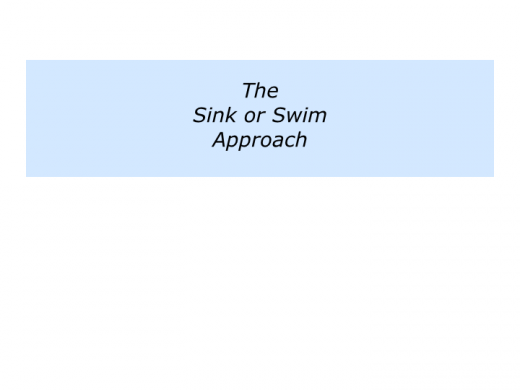
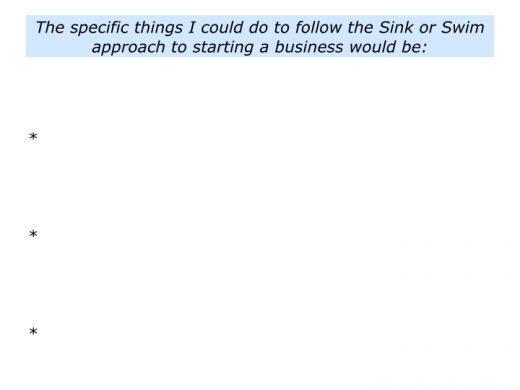
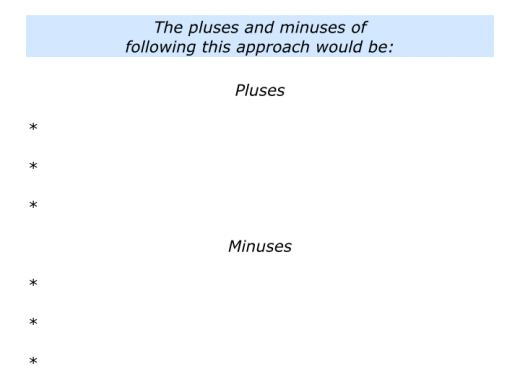
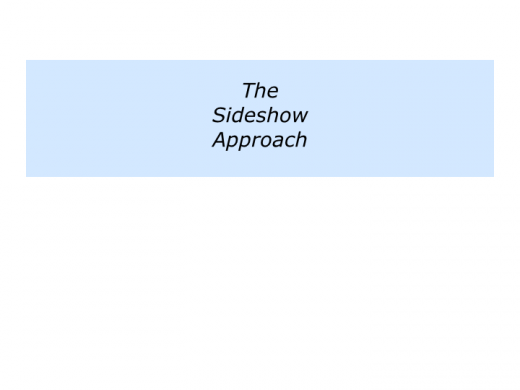
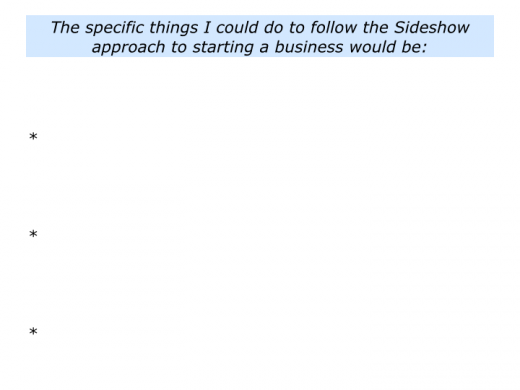
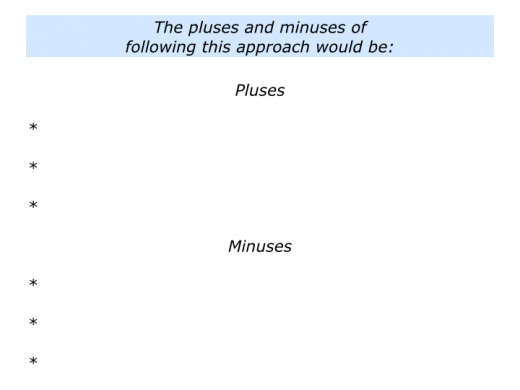
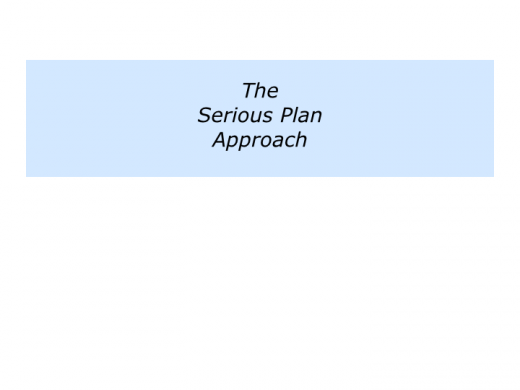
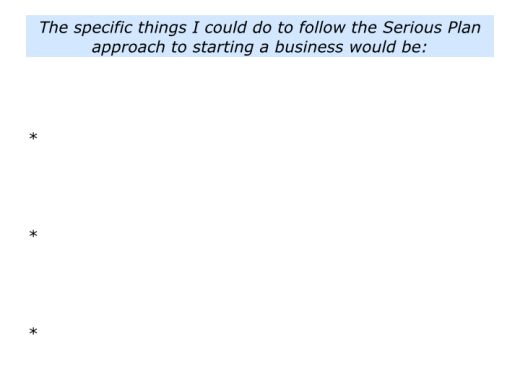
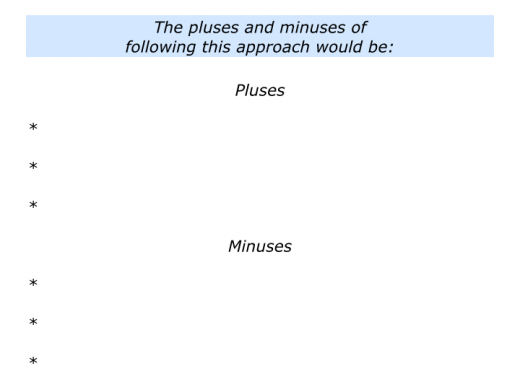
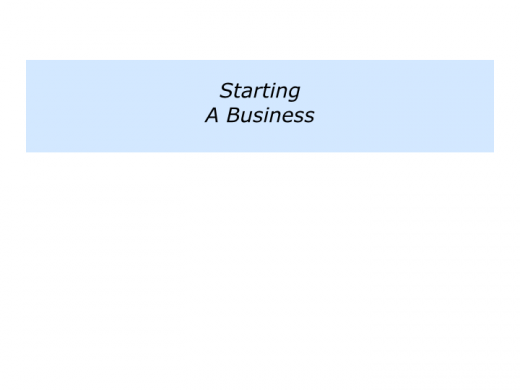
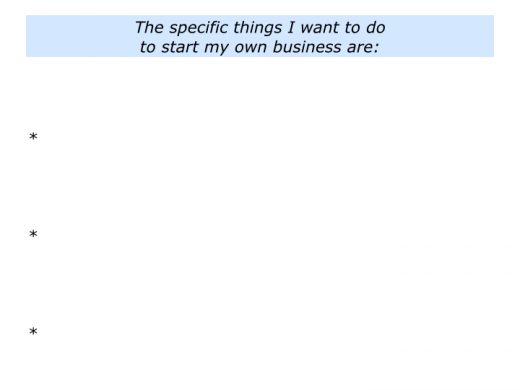
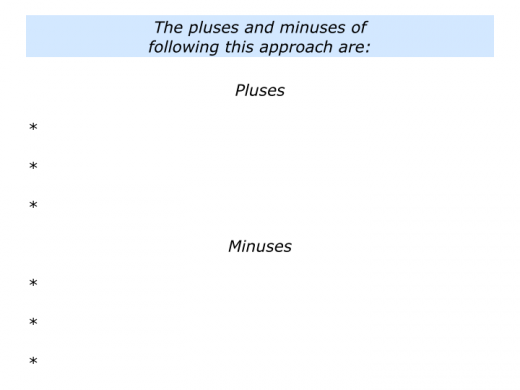
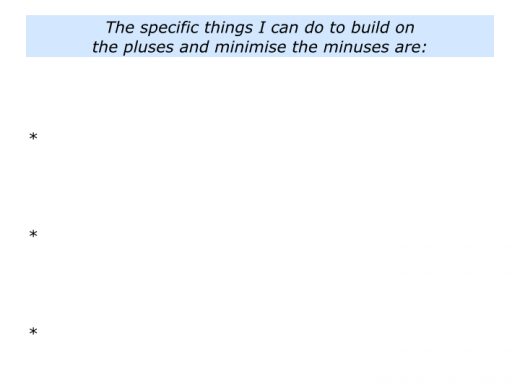
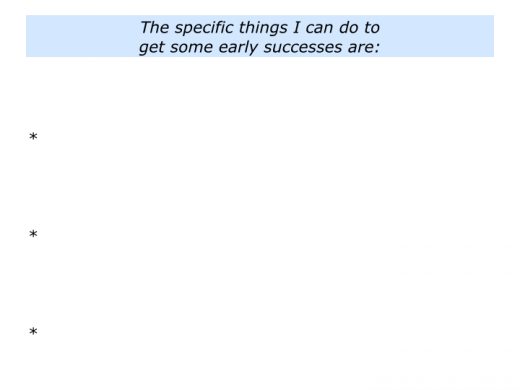




Leave a Reply